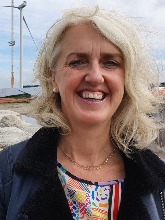New publication of associated professor Machteld van den Broek and co-authors; Effect of modelling choices in the unit commitment problem

In power system studies the unit commitment problem (UC) is solved to support market decisions and assess system adequacy.
Simplifcations are made to solve the UC faster, but they are made without considering the consequences on solution quality. In this study we thoroughly investigated the impacts of simplifcations on solution quality and computation time on a benchmark set consisting of almost all the available instances in the literature.
They found that omitting the minimum up and downtime and simplifying the startup cost resulted in a signifcant quality loss without reducing the computation time. Omitting reserve requirements, ramping limits and transmission limits reduced the computation time, but degraded the solution signifcantly.
However, the linear relaxation resulted in less quality loss with a signifcant speed-up and resulted in no diference when unserved energy was minimized. Finally, we found that the average and maximum capacity factor diference is large for all model variants. Read the publication.
More news
-
15 September 2025
Successful visit to the UG by Rector of Institut Teknologi Bandung
